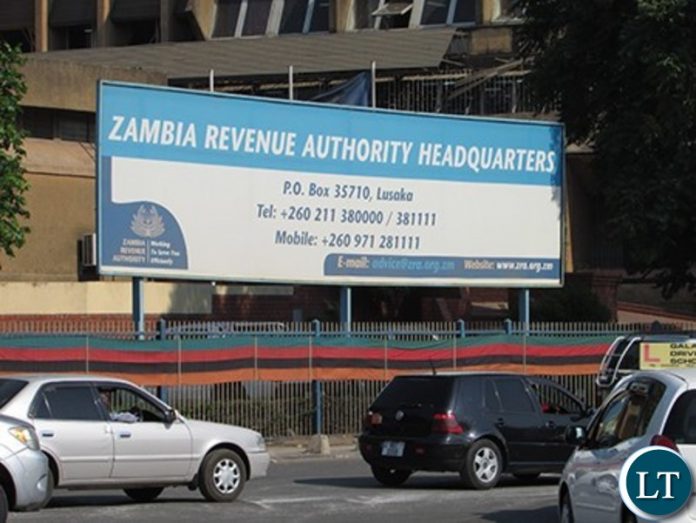The Zambia Revenue Authority (ZRA) has revealed that it has now prosecuted five (5) companies on the Copperbelt Province in court on fraud charges relating to Value Added Tax (VAT).
Mr. Oliver Nzala, the ZRA Acting Corporate Communications Manager, said Government of the Republic of Zambia has lost in taxes amount of K2,513,234,47 in the case of Changesheng Mining Equipment Company Limited.
In the case of Changesheng Mining Equipment Company Limited and its Director Wang Qi aged 33 appeared before the Kitwe Subordinate Court on 20th September 2022 for plea.
A fine of 300,000 penalty units (K90, 000.00) may be imposed on conviction by the courts of law on any person who willfully evades tax, or assists another person to evade tax.
In addition to this fine, a jail sentence of three years may be imposed by the courts of law for tax evasion offences.
The accused pleaded not guilty to all 24 counts of false returns and statement contrary to section 43 and tax evasion contrary to sections 44 of the Value Added Tax Act, Chapter 331 of the Laws of Zambia.
The case has been adjourned to 17th and 19th October 2022 for commencement of trial.
“The Zambia Revenue Authority (ZRA) says it has now prosecuted Five (5) companies on the Copperbelt on Value Added Tax (VAT) fraud charges. Currently, the Authority is prosecuting Changesheng Mining Equipment Company Limited and its Director Wang Qi aged 33 who appeared before the Kitwe Subordinate Court on 20th September 2022 for plea,” Mr. Nzala stated.
‘The accused pleaded not guilty to all 24 counts of false returns and statement contrary to section 43 and tax evasion contrary to sections 44 of the Value Added Tax Act, Chapter 331 of the Laws of Zambia. It is alleged that Changesheng Mining Equipment Company Limited and Wang Qi its Director, on dates unknown but between the 1st day of May 2021 and the 31st day of August 2022 at Kitwe in the Kitwe District of the Copperbelt Province of the Republic of Zambia, jointly and whilst acting together, in purported compliance with the law provided Tax Invoices to Zambia Revenue Authority purporting to show that Changesheng Mining Equipment Company Limited had purchased taxable goods from other companies on the Copperbelt which was false, thereby defrauding the Government of the Republic of Zambia of revenue.”
“Further, in the same period and jurisdiction Changesheng Mining Equipment Company Limited and Wang Qi its Director evaded paying Value Added Tax and interest by providing false returns that taxable purchases were made from local Copperbelt Companies when infact not.The actions of Changesheng Mining Equipment Company Limited and Wang Qi its Director caused loss of revenue to the Government of the Republic of Zambia in taxes amount of K2,513,234,47. This is the fifth (5th) company that is being prosecuted on the Copperbelt on VAT fraud charges,” Mr. Nzala said.
Taxpayers have a responsibility to comply with tax laws failure to which penalties may be imposed.
The offences that taxpayers may be convicted of include;failure to furnish a full and true return;failure to keep records, books, accounts or documents and failure to produce any document for examination or inspection by the Commissioner-General.
Zambia is said to have been losing huge revenue from the mining sector due to tax avoidance among mines.
In February 2021, the Organization for Economic Cooperation and Development (OECD)estimates that Africa loses USD 50 billion annually to tax evasion.
According to a news report by News Diggers, in some place the figure is much higher; for example, the United Nations Economic Commission for Africa places the figure at USD 100 billion annually.
Tax evasion and avoidance pose a huge threat to development by widening the financing gap.
Tax evasion involves taking illegal steps to avoid paying taxes, such as not declaring income. Tax avoidance on the other hand is defined as the legal measures employed to use a tax regime to pay the least possible tax such as setting up corporate residence in tax havens and claiming on deductions.
The financing gap refers to the difference between the amount needed to achieve Sustainable Development Growth and actual government revenue.
The United Nations Conference on Trade and Development (UNCTAD) estimates that there is a financing gap of USD210 billion for crucial government initiatives, such as infrastructure development, food security, healthcare and education.
Critical to implementing an effective development agenda is an efficient tax policy and administration, but more importantly tax enforcement.



Good to see ZRA nailing this China Man , catch a few more and maybe a few Indians while they are at it
Did a journalist write this?
Awful content
Comments are closed.